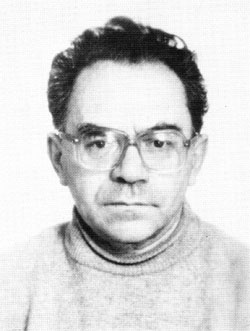 Vladimir Kislik
|
Born in 1935 in Kislovodsk. His father was a member of the Communist Party, his mother was from a family of rabbis. At home they celebrated Jewish holidays (Pesah, Yom Kipur, Rosh ha-Shana). His uncle on mother's side was the head of the Jewish community in Kislovodsk, he organized the brit mila for Vladimir. In 1958 Vladimir graduated from the Moscow Institute of Nonferrous Metals and Gold and was sent to work on the first Soviet base for manufacturing nuclear weapons in the closed town of Ozersk (Chelyabinsk-40). There in 1965 he defended his doctoral thesis on plutonium metallurgy. In 1966 he moved to Kiev and from 1967 till 1973 worked at Kiev Institute of Nuclear Research of the Academy of Sciences of Ukraine. He applied for the exit visa in October, 1973, and in 2 months was refused because of «security clearance required by his previous work». His Zionist activity started in 1973 after the refusal. He participated in organizing ulpans to study Hebrew, Jewish history and culture, organizing and a managing of the seminar for refusenik scientists, organizing of collective actions of refuseniks (collective letters to the authorities and abroad, demonstrations, celebrating of the Jewish holidays, etc.). He helped to supply ulpans and individuals by educational and other literature, organized a seminar on legal problems for refuseniks, consulted "green" refusenicks on various problems, organized the material aid to refuseniks and ulpans, carried out communication with other groups of refuseniks in different cities of the USSR. In 1974, having obtained the Israeli citizenship, he begun process of refusal from the Soviet citizenship, but always received refusals to his refusal. From 1974 till 1980 he used to be arrested from one to three times every year for 15-30 days. In 1980 after 30 days of administrative arrest he was put in the Kiev Psychiatric Hospital and contained there during the Moscow Olympic Games. In March, 1981 after the purimshpil which was held in a private apartment, he was arrested at a bus stop and formally accused of hooliganism (KGB agents, who carried out the surveillance on him were called as the "witnesses"). In May, 1981 on the trial in the Kiev Criminal Court he refused to participate in proceedings based on forged charge. He was sentenced to 3 years of imprisonment. Served his time in full in the Gulag camps of Dzerzhinsk and Zhdanov near Donetsk in the Ukraine. He was released in March, 1984, and returned to Kiev, where he found a job as a fitter on a factory, producing reinforced concrete structures. Soon he married a Moscow refusenik Bella Gulko and in 1985 moved to Moscow. In Moscow he continued his Zionist activity, led a seminar on legal problems for refuseniks and carried out communications with Jewish activists in other cities of the USSR. Participated in meetings with the officials from the Western countries, with President Reagan, President Mitterrand , ex-president Giscard d'Estaing and US State Secretary George Schultz. He received permission to go in January 1989 and in March left for Israel. At first he lived in Jerusalem, and from 1995 he lives in the community of Dolev, Binyamina region. |
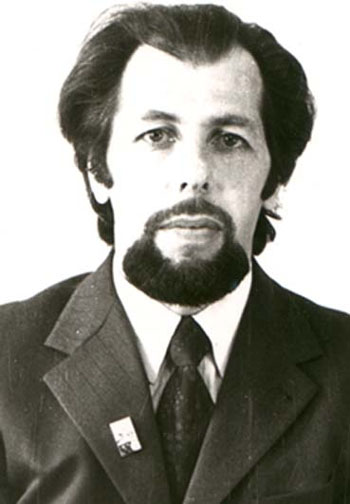 Evgeny Lein
|
He was born in 1939, in Leningrad, in an assimilated family, but grew up in the atmosphere of deep respect for the Jewish history and traditions. Applied for the exit visa in July, 1978, but in August was refused with the formulation: "It is unprofitable for the USSR to deliver qualified personnel to the hostile states". After the refusal, he started his fight for the right of free emigration to Israel for Soviet Jews: he took part in supplying letters of protests to the authorities, worked in the seminar of refusenik scientists. He studied Hebrew, made photocopies of Hebrew textbooks, offered his apartment for celebrations of the Jewish holidays and for lectures on history and traditions of the Jewish people. He was arrested on May 17th, 1981, on the false charge of giving to a police officer "a blow which not caused any damage to health". The real reason for his arrest was his research work "Statistics of the Leningrad Refusal", and his attempt to organize a wide celebration of the Israel Independence Day one week prior to arrest. He used his right for self-defending and the last word on the trial for the public protest against prosecutions of the Jews, who wanted to repatriate themselves and their families to Israel. He was sentenced to 2 years in exile and to forced labor on a factory producing hazardous materials. After six months of confinement in the ill-famous Leningrad jail "Kresty" and 45 days of transport through different transit prisons of Sverdlovsk and Achinsk he was finally was delivered to the place of forced labor - a small town of Chernogorsk in Hakassia, near the border with Manchuria. But as a result of support from the Committee of Concerned Scientists he was released on probation ahead of schedule ("conditionally-ahead of schedule"). In 1988 he took part in the meeting of refuseniks with President Ronald Reagan in Moscow. He received his exit visa in 1989 and left for Israel, where he taught mathematics at the Jerusalem University. Today Dr. Evgeny Lein, his wife the Dr. Irina Lein, their children and six grandsons live in Maale-Adumim. The information was provided by Evgeny Lein. |
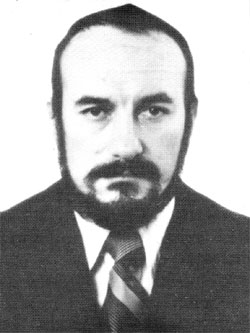 Alexander Paritsky
|
Born in 1938 in Kharkov, the Ukraine. Organized a scientific and cultural Jewish seminar, and participated in the grass-root initiative for creation of the Memorial Monument for Jews perished in Holocaust . Organized the demonstrations of protest and solidarity at the graves of murdered Jews. In 1980 he organized an open university, where he delivered lectures on the Jewish history. He was arrested in 1981 on the charge of the anti-State Zionist activity and sentenced to 3 years in the Gulag. Released in 1984, and went to Israel in 1988. |
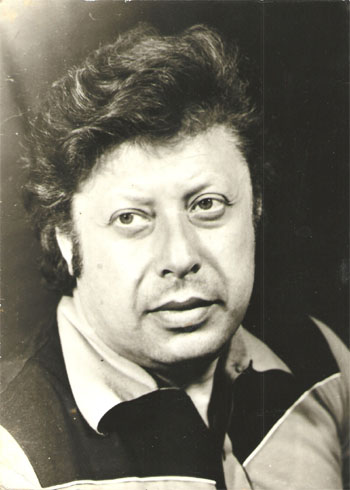 Kim Friedman
|
He was born in 1934 in Kiev in a family, which followed Jewish traditions. His father, who fell at the WWII in 1942, knew Hebrew, all his family members spoke and read Yiddish and celebrated Jewish holidays, his grandmother followed rules of kashrut up to the end of her life. All of Kim's childhood friends were from families which tend to adhere to Jewish tradition, and thus a Jewish environment, as well as all the manifestations of growing public and state anti-Semitism gradually formed his Jewish identity. Therefore, the insight came to him in 1967, easily and naturally. In 1969 he resigned from his classified work, in 1972 applied for the exit visa to leave for Israel and was refused immediately. After that Kim and his family took an active part in the struggle for free emigration of Jews from the Soviet Union to Israel. Kim began to communicate with other refuseniks in Kiev and other cities, including Moscow and Leningrad. A particularly close relationship he had with former prisoners of Zion Vladimir Kislik and Leo Elbert. Kim held in his apartment a seminar on Jewish history and an ulpan to study Hebrew. During the period from 1973 to 1979 many relatives of Kim left for Israel; in 1976 he sent to Israel his wife and daughter, who by that time graduated from the high-school (in Israel over time, she got married and gave birth to Kim's two granddaughters). After the Soviet invasion in Afghanistan the flow of emigration from the USSR to Israel practically stopped, and Kim wrote an open letter to the U.S. Senate, in which he did not choose diplomatic expressions. He was arrested in March 1981, almost simultaneously with Kislik. Kim was charged in "tuneyadstvo" (a parasitic way of living), but during the investigation he was threatened by changing the charge in the more serious crime "anti-Soviet propaganda". In May on the trial Kim gave the disqualification to all the judges, and when the disqualification was not satisfied, he refused to participate in the process. He was sentenced to one year in the Gulag, which he served in the camp ITK-301/59 in the Vinnitsa region. He was released in March 1982, but was allowed to leave only in 1988, when they started to let the refuseniks go (his mother died 3 months before obtaining the permission to go). In August 1988 Kim arrived to Israel. He lives currently in Kiryat Yam. |
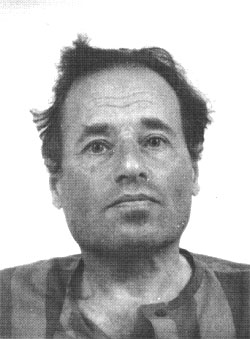 Leo Shefer
|
Born in 1931 in Krasnodar, he from 1978 to 1981 regularly mailed written lectures on the study of Hebrew and Jewish history to ulpans in different cities of the Soviet Union. He wrote poems, songs and pamphlets on various topics. In 1981 he was arrested, charged of Zionist activity and in 1982 was sentenced to 5 years of imprisonment in the Gulag. In 1986 he was released from the camp in Perm. Went to Israel in 1992. |
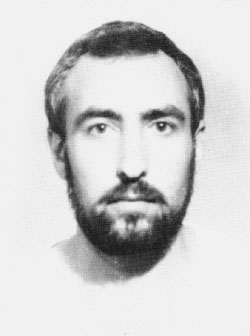 Vladimir Zuckerman
|
Born in 1947 in Odessa. As a result of rampant anti-Semitism, he began from his youth to study the Jewish problem, and later as a grown-up man became a Zionist activist. In 1975 he started conducting seminars on a wide Jewish topics, history of the State of Israel and history of Zionism. He wrote letters and held hunger strikes of protest against the infringement of the human rights to the Jews in the Soviet Union, regularly listened to the broadcasts of «Voice of Israel» and shared the news and reports with other people. In 1981 he was arrested, charged with the anti-Soviet Zionist propaganda and sentenced to 3 years of imprisonment in the Gulag. He served his sentence in prisons and camps of Kishinev, Odessa, Kharkiv, Kazan, Sverdlovsk, Kizil and others. He was released in 1984 and immediately requested permission to leave the Soviet Union for Israel, but his request was granted only in 1987, and he finally went to Israel. |